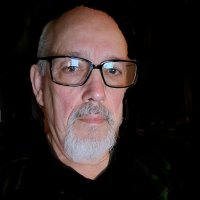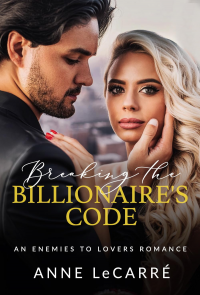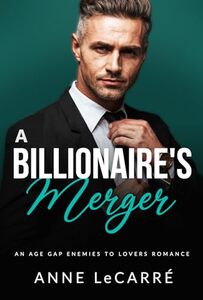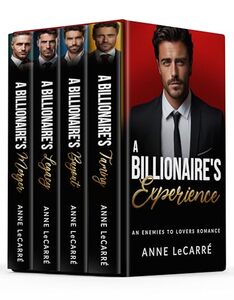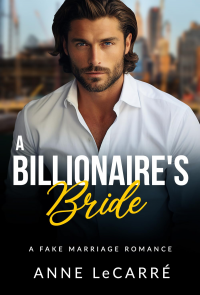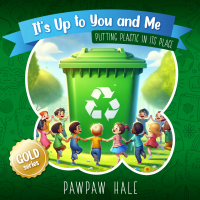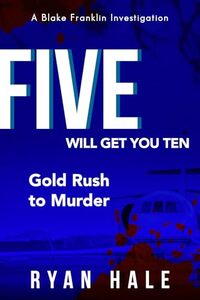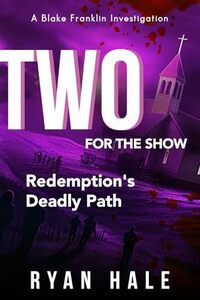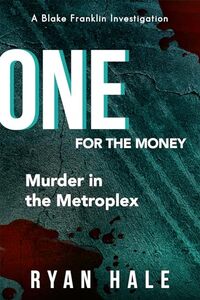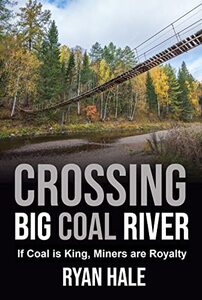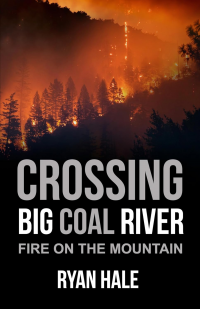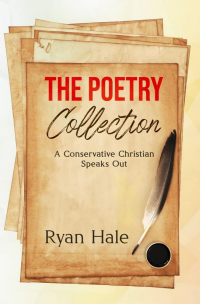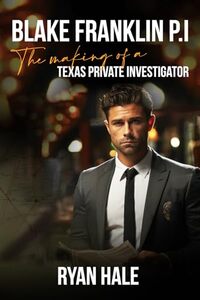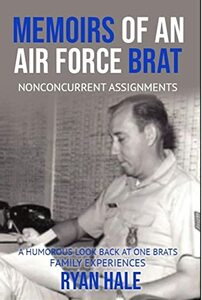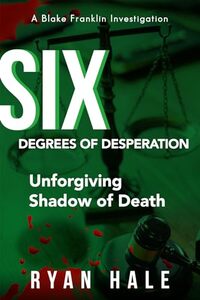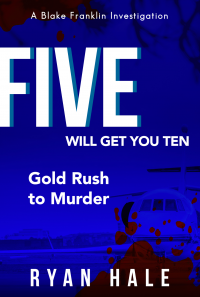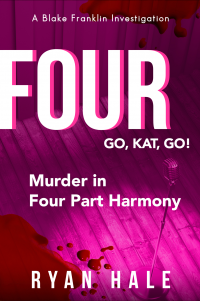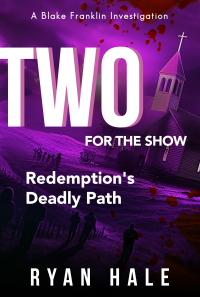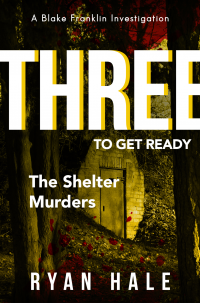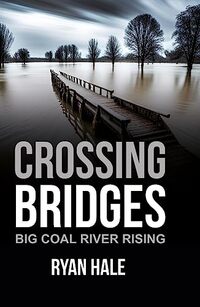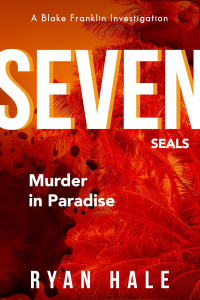What inspired or motivated you to transition from a career in the restaurant industry and telecom/advertising to become a full-time writer?
I retired from fulltime work 10 years ago. I have been managing some rental properties for income since that time. I have always written poetry and a few short stories over the years and people have encouraged my to pursue writing. In November of 2022, my wife's brother passed away from COVID. I wrote a poem titled The Empty Seat for my sister-in-law. She and my wife were moved by it and said I needed to get serious about writing. I started writing fulltime in December 2022.
Can you describe your daily writing routine? How do you manage your time and stay disciplined?
I usually start my day between 4:30am and 6:00am. I get my first cup of coffee and sit in my favorite recliner with my laptop. I check social media and email and then start writing or editing - whatever phase I happen to be in. Some days there is a mixture of the two. I work at the various aspects of the book publishing business at least ten hours every day. I enjoy it so much I do not consider it work. I take breaks throughout the day to take my dog for a walk and get some fresh air. On these walks I always have ideas for scenes I'm working on or that I know will be coming up. It has been a great way to keep the ideas flowing.
Your career spans multiple genres, from restaurant industry insights to telecom and advertising. How do you balance the diverse themes in your writing?
I write about the things that interest me and that I believe my readers will enjoy. My mysteries in the Blake Franklin Investigations series are a way to showcase a good guy, doing the right thing, for the right reason and having things actually work out for him. I ran into obstacles in my own career where the good guys didn't always finish first. I wont let that happen in the worlds I can create.
Are there specific authors or literary works that have influenced your writing style or storytelling?
My biggest influence as a writer came from a few different incredible sources. Clive Cussler changed my life. I grew up without books - never reading anything that was not assigned in school and hating the ones I was forced to read for a grade. When I was 19, I picked up a copy of Raise the Titanic by Clive Cussler. The Dirk Pitt and Al Giordino characters came alive on those pages. I started reading everything Clive Cussler wrote. Over the years I have read more than sixty Cusslers in five or six different series. Then I started reading James Patterson, Jeffery Deaver, John Sandford, John Grisham. Patricia Cornwell, and dozens of others. My style of writing is certainly influenced by all of them but also by Stephen J Cannel who wrote primarily for television. When I read, I visualize every scene. Now, when I write, I do the same thing. I visualize what I'm writing - or vice versa. That has enabled me to write a lot of books very quickly because the scenes just flow. If it doesn't make sense, I change the direction of the scene. In each instance I'm asking "what would he or she do if this happened - or that happened instead?
What led you to create the Crossing Big Coal River series, and what themes or messages do you aim to convey through this series?
My Crossing Big Coal River series began as an homage to the people in West Virginia I knew as a child. I sent an advance copy of the first few chapters to my aunt to be sure that it was authentic in terms of dialect and she encouraged me greatly. Once it came out, the reaction was phenomenal and I decided to add a second book (Crossing Bridges - Big Coal River Rising)because of the interest. Now I am releasing the third book (Crossing Big Coal River - Fire on the Mountain). The second book talks about a flood that struck the area in the early 60s and then the third book brings in the moonshine business which is a part of the Appalachian lore. All three books have been a work of love and tribute to the people there, which are my kin and their neighbors.
With the release of the seventh book in the Blake Franklin Investigations series, how has the character evolved, and what challenges has he faced throughout the series?
Blake began his Private Investigations agency because he wanted to serve at a higher level than being a patrol officer in Fort Worth allowed him. His father is the Chief of Police and he felt like an under-achiever, which is something Blake is not. He always wanted to make his own way, never relying on nepotism to clear paths for him. He has a rich uncle who wanted him to come to work for him in the oil business, but he chose to stay with protecting and serving the people of Texas. When he first began, he was brash, confused, a little bit careless but one hundred percent committed to taking care of his clients. His initial success and notoriety took im by surprise and with each successive case, he has kept his eyes on doing what is right, lawful and with his clients interest in mid. In this way, my own determination that he remain a good guy and still win the day is upheld. By the end of book seven, Blake is much more self-assured. He leads his people with confidence and he takes on a case involving a former SEAL after having employed several of them in his celebrity protection business. By book seven, the good guy has flourished, become financially successful and got the beautiful girl to fall for him, while staying true to his beliefs and growing as an individual in knowledge, experience and influence.
How do you approach the writing process? Do you start with a detailed outline or let the story unfold organically?
I am a "pantser". I have not used an outline for any of my books. I visualize and write. Write and visualize. Rinse and repeat. From a continuity perspective, writing one book after another, finishing each one in about a month or less, has made it easier to keep track of people, places, dates, etc. Keeping the scenes moving has been my objective and I have a general idea of where I want the book to conclude, but that changes as I go along the writing process. I have read a lot of very complimentary reviews that appreciate the twists and turns. Those are the result of my "what if" process of completing scenes. "How would he react if this character said this or did that?" And I ask, what would the reader think if this happened to this character. I have written some scenes that have brought tears to my eyes. When that happens, I know I've written something worth reading.
What advice would you give to aspiring writers, especially those looking to make a career switch similar to yours?
Learn from the myriad mistakes I have made rather than make them yourself. Don't release too many too soon. Don't pay "experts" who contact you unsolicited with false praise and NEVER even answer the phone or email when a publisher contacts you unless you have submitted something, been declined, refined your work and resubmitted. Even JK Rowling, James Patterson and my hero Clive Cussler were new authors at one time. They all had manuscripts declined by publishers. There is no way a legitimate publisher is going to seek you out to publish yours. If they call you unsolicited, put your hand over your wallet and politely end the call. Build a following through email and social media. Let your followers know what you are doing throughout the process and map your process to be certain you follow a plan for success. There are legitimate experts that can help you and their guidance will be costly, but doing it wrong on your own is also costly, and the greatest cost may be in lost opportunity. If I could be so bold as to offer a starting list, I would say.1) Begin writing when the idea is formed and fresh and you know there is an audience for it. 2) Contact that audience and begin to develop it organically by nurturing the relationship with updates, character introductions, little extras that turn interested people into Raving Fans. 3) Develop the electronic billboards to advertise your work (social media platforms, web site and a landing page. 4) Announce your upcoming release a few months ahead of the launch date, 5) Use a professional Editor to make certain your work is as good as you think it is. Moms, spouses and friends are great sounding boards but an objective and thorough review from someone who doesn't love you is critical to the process. Grammarly is a great tool but it is not an editor. 6) Rewrite and edit again. 7)Send Advanced Reader Copies to a select group of objective and critical readers at least a month before your scheduled release date. This will give you time to make last minute adjustments if they are warranted. Sometimes ARC readers will say they don't understand a scene or the way something is phrased. It may be a simple fix and it may just be a matter of opinion. You decide what to do with the information. Try to get as many reviews as possible on the day of launch/ There are sites like Pubby, Booksprout and BookSiren where you can get legitimate reviews - but DO NOT PAY for reviews. They are not worth the money. ARCs are the best if you can get enough of them. 8) Announce your launch on all platforms two weeks ahead of launch date. Try to build up the interest and enthusiasm. Send out newsletter updates to all of your followers. Try to get other authors on Facebook Group pages to share your launch information. If you have had a video made or you have done your own for TikTok and Youtube - let them rip. Tell everyone that your book will soon be there. Don't let "imposters syndrome" limit you. Trust me - I have asked myself a thousand times, "why would anyone care about what I write," but in the last three months more than 5,000 people have downloaded my writing. I don't ask that question anymore. Your questions and self talk should be empowering - not disabling.
How do you go about creating and developing your characters? Are they inspired by real people or entirely fictional?
My Blake Franklin characters are fictitious and not based on anyone. Blake may be my ideal image of myself when I was younger, and I want him to succeed in areas I failed. The Crossing Coal River characters are based on people I knew or met as a kid. The main character, Quincy, is a combination of two of my cousins who were golden gloves champions. The names are certainly inspired by real individuals with slight deviations. The area described is exactly like the area my kin lived.
Having self-published multiple books, what challenges have you encountered, and how have you overcome them? The biggest challenges I have faced were the result of my own over-eagerness to get my books out. I didn't know to do all the things I described in the previous answers. I didn't know to avoid scammers and Ego Publishers (Vanity Publishers) or to steer clear of paid reviewers who do nothing but initiate BOT responses. All of those costly errors I cautioned about actually happened to me out of hubris and my desire to be read. I have overcome them by growing and learning. I took some time away from writing to research and gain an understanding of the business side of writing. The marketing side is the bane of every Independent authors existence. There are some who come to writing through a journey of marketing and social media expertise and they will do well. The rest of us have to find our way.
Can you describe your ideal writing environment? What conditions help you focus and be most creative?
My ideal writing space is exactly where I am at this moment. My recliner, legs up, laptop in place, life going on around me, dog at my side, my wife of 45 years walking around the house doing things and talking to me. Life going on as usual but instead of watching television, I am creating the videos in my mind. I' writing the dialog to make my video engaging, emotional, exciting, calming - whatever I need it to be and whatever my readers hope it will be.
When working on a sequel, how do you ensure continuity while introducing fresh elements to keep the series engaging?
I mentioned earlier that I write them so soon after one another that continuity is pretty easy, but I do have to read back through each of them on occasion to ensure I get dates, places, names, ages, occupations, education, interests, dogs names, cars driven. All of those points are important to the story. Getting it wrong is like watching a show where a character dies and then appears in a later episode. That only happens in soap operas. No offense intended to soap opera enthusiasts or writers.
What attracts you to writing short stories, and how does your approach differ when writing them compared to novels?
Short stories, for me are a way to get an idea on paper that popped in, uninvited to my creative process. I'll be walking my dog (our walks are exactly a mile long and take 23 minutes) and I'll see something that triggers a though. Some times that thought lingers and grows and it has nothing to do with my current project. That becomes a short story if I can't get the idea out of my head. Other times, I will see a post on Facebook that is intended to prompt a writing project so I take it as a challenge and write something. Putting a few thousand words into a story is easy to do. Making them worth reading is the challenge, and I have been fortunate to have found the right words for my short stories. The same is true of my Christian and Conservative poetry. I write a lot about current events and problems I see in our country, social, political, religious, and relational issues and a poem is born.
Looking back on your writing journey, what legacy do you hope to leave with your work?
Additionally, can you share any hints or details about your future writing projects? I want my children, grandchildren (and soon I'll have a great granddaughter) to have and appreciate the body of work I leave behind. I would love it if my writing could earn a living for my wife and I and if they would continue to produce long after I'm gone. I place little hope in that happening, but to have the books as a tangible reminder of my existence is something, for which, I remain hopeful. I have recently finished the third book in the Crossing Big Coal River series and it will be released on March 15th. I am working on the eight book in the Blake Franklin series called Eight Days a Week. I am writing an anthology titled Wallingford Heights that is an interesting project. It was suggested on a Facebook Group page that three or four authors would write part of the anthology, based on their chosen genre. I stepped up and said I would do a mystery. Someone else agreed to do a romance and another a historical mystery. The other two authors got too busy to carry it out so I'm doing all three. I have finished two of the three. Wallingford Heights will be an exploration of generational wealth within a family over a period of 130 years. There are some good things and some bad that members of a family can do with the opportunities they're given. This anthology will show all of it.
When did you join AllAuthor? What has your experience been like?
I joined AllAuthor in March of 2023. At the time I had been writing for just over three months. I had a Memoir and four books published at the time. I have added ten books and short story/novellas since that time. AllAuthor, like everything else in life will give you in equal measure to what you put into it. Staying up to date and keeping your profile current is a critical deliverable for the author. AllAuthor has done a wonderful job of sending out tweets and other notifications of my book activity, to help increase awareness that I'm here and my work is available. I have had close to 2,000 profile reviews from readers and authors on the AllAuthor site. That is gratifying.

